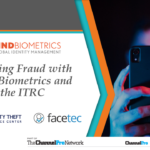Welcome to FindBiometrics’ digest of identity industry news. Here’s what you need to know about the world of digital identity and biometrics today:

Turkish Rescuers Leverage Biometric Tech to ID Earthquake Survivors
Turkish authorities are using domestically-made biometric technology to help identify children rescued from the aftermath of this week’s massive earthquakes. The Scientific and Technical Research Council of Türkiye (TÜBİTAK) says its DerinGÖRÜ facial recognition has so far been used to identify 144 kids. Developed by TÜBİTAK’s Informatics and Information Security Advanced Technologies Research Center, the system has previously been used by law enforcement authorities, and is now being used to match children against images in missing persons reports.
Baltimore Student Union Protests Face-scanning Security
The Baltimore Student Union is protesting plans on the part of the city’s public school authorities to implement a new security system featuring facial recognition and weapons detection capabilities at four schools. The “Evolv” system was selected by the Baltimore City Public School system to provide enhanced security after violent incidents over the past year. The student group argues that the procurement process was both rushed and opaque, and that the Evolv system has been found to struggle with the task of automatically identifying weapons, but school system authorities insist that they are moving forward with the four-school pilot.
Jumio Must Face BIPA Suit: Judge
A federal judge has ruled that a lawsuit filed against Jumio under Illinois’s Biometric Information Privacy Act (BIPA) must move forward, rejecting the defendant’s claim to an exemption for financial institutions. The company’s technology was used by Binance, the popular cryptocurrency exchange, to confirm the identities of end users by matching their selfie photos to official ID images via facial recognition. The plaintiff alleges that Jumio failed to obtain his consent as required under BIPA.
‘Magic Avatars’ Draw BIPA Claim
Prisma Labs saw its Lensa app go viral last fall thanks to its ability to turn users’ selfie images into stylized “magic avatars”, but its popularity has quickly waned, and the company is left facing a new lawsuit under Illinois’s Biometric Information Privacy Act. The proposed class action accuses Prisma of failing to provide the proper disclosures about Lensa’s collection of biometric data and about its data retention policy, as required under the Act.
Africa-focused Selfie Onboarding Startup Raises $20M Series B
Smile Identity, a selfie-based identity verification startup focused on the African market, has raised $20 million in a Series B funding round led by Costanoa and Norrsken22, with participation from Commerce Ventures, Courtside Ventures, Two Culture Capital, Valuestream Ventures, Intercept Ventures, Latitude, Future Africa, and 500 Fintech. The company emphasizes that its “SmartSelfie” technology has been trained on more than 5 million African faces, and offers an accuracy rate of 99.8 percent. Smile Identity’s Series B raise brings the startup’s total funding to $31 million.
Low-code Authentication Startup Announces $53M in Seed Funding
Los Altos-based Descope has “emerged from stealth” with its announcement of $53 million in seed funding. The startup has been working on a low-friction authentication and user management platform for the enterprise that can be implemented with a few lines of code. The platform enables administrators to create authentication workflows through a visual interface, and supports a range of authentication options including magic links, social media logins, and biometric authentication based on the WebAuthn specification.
Tile Turns to Biometrics to Solve Stalker Problem
Tile is looking to make its eponymous Bluetooth trackers invisible to thieves – and turning to biometric identity verification to ensure that the technology isn’t abused. Currently, the Tiles can be detected using a Tile app feature called “Scan and Secure”. It’s meant to let people know when a nearby Tile might be following them – such as in the case of a stalker. But that same feature can be used by thieves to figure out whether a piece of property has a Tile tracker attached to it. Now, a new “Anti-Theft Mode” feature will render a Tile invisible to “Scan and Secure”, but to make sure it isn’t being abused by stalkers, Tile is requiring interested users to submit to a selfie-based identity verification system, and to consent to letting Tile share their information with law enforcement.
FacePhi Gains Ground in Korea
Korea Investment & Securities (KIS) has become FacePhi’s latest client in South Korea. The investment bank has opted to use the latter’s selfie-based identity verification technology in its mobile onboarding process, eliminating the need to ask new clients to deposit a nominal fee during the account opening process. The implementation represents an important win in FacePhi’s efforts at global expansion, in which opening a Korean office in 2019 was an early step. Read our full story.
Veridos Secures Security Conference
Biometric access control technology from Veridos is being used to secure the Munich Security Conference for the second year in a row. The company’s VeriGO eAccess solution is being used to verify the identities of authorized attendees as they pass through entryways, leveraging facial recognition technology. Attendees are also carrying chip-embedded access cards provided by Veridos parent company Giesecke+Devrient. Commenting on the security system, MSC COO Benedikt Franke noted that “verification times were greatly reduced and traffic moved more efficiently” thanks to Veridos’s technology last year. This year’s event runs from February 17 to 19.
–
February 16, 2023 – by Alex Perala
Want to get the identity news digest early? Become a member and get the digest sent straight to your inbox, before it’s published on FindBiometrics:








Follow Us